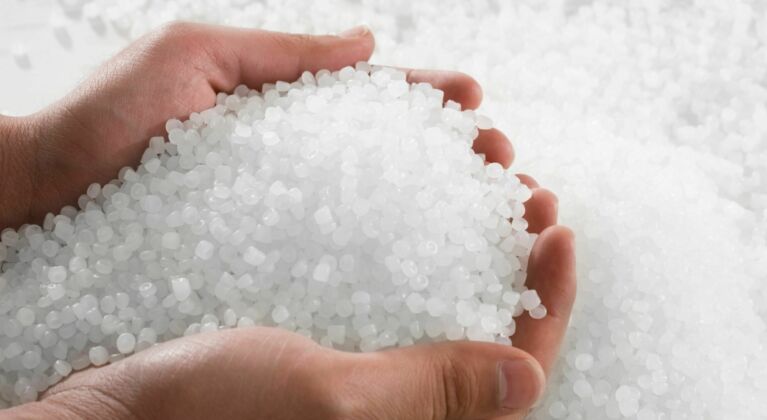

J&B Recycling Knowledge

How Consumer Attitudes Shape Recycled Plastic Packaging
As our world becomes increasingly aware of the environmental challenges posed by plastic waste, the need for sustainable solutions in packaging has become more pressing than ever before. Recycling plastic has emerged as a promising avenue to mitigate the harmful effects of plastic waste on our environment. However, the question arises: Would manufacturers use more recycled plastic in creating new packaging if consumers were less fussy about the aesthetics, accepting that recycled plastic isn't a perfect pristine white?
In this blog post, we will delve into the intricate relationship between consumer attitudes and the adoption of recycled plastic packaging by manufacturers.
The Reality of Plastic Waste
Plastic waste has become a global crisis, polluting oceans, harming wildlife, and even seeping into our food chain. To address this pressing issue, recycling plastic is seen as an essential step towards creating a more sustainable future. Recycled plastic significantly reduces energy consumption and greenhouse gas emissions when compared to producing new plastic from raw materials. It is a crucial component of the circular economy, wherein materials are reused and repurposed rather than discarded.
Consumer Perception and Aesthetics
In the realm of packaging, aesthetics have played a significant role in consumer perception. The pristine white appearance of new plastic packaging is often associated with cleanliness, purity, and quality. However, when it comes to recycled plastic, the perception may differ due to its inherent characteristics. Recycled plastic may have a slightly different hue, showing signs of previous use, and might not meet the same visual standards as newly produced plastic. Unfortunately, this has led some consumers to view recycled plastic as inferior, despite its environmentally friendly advantages.
The Grocer recently highlighted that brand owners could help meet recycler's requirements by losing brand colours. Their article makes for an interesting read >> Read Article.
The Psychological Barrier
The human mind is inherently resistant to change, and consumer attitudes are no exception. The notion that recycled plastic is subpar due to its appearance can create a psychological barrier for both consumers and manufacturers. Consumers might hesitate to purchase products in visibly recycled plastic packaging, assuming the product inside is of lesser quality. On the other hand, manufacturers may fear a negative impact on sales if they switch to recycled packaging materials that don't meet the prevailing aesthetic expectations.
The Role of Marketing and Education
Effective marketing and consumer education can play a pivotal role in breaking down these psychological barriers. By focusing on the environmental benefits and the positive impact of using recycled plastic, companies can change consumer perceptions. Emphasising that a shift to recycled packaging signifies a commitment to sustainability and a greener future can resonate with conscious consumers.
Moreover, educational campaigns can highlight the importance of embracing imperfection in the pursuit of a cleaner planet. Encouraging consumers to look beyond surface aesthetics and to recognise the true value of recycled packaging will be crucial in reshaping their attitudes.
Economic Considerations
At the core of every business decision lies the question of cost-effectiveness. Manufacturers may hesitate to adopt recycled plastic packaging if it results in higher production costs or a potential decrease in sales due to consumer hesitance. However, as demand for sustainable products grows, economies of scale and advancements in recycling technology are likely to make recycled packaging more economically viable for businesses.
Government Initiatives and Regulations
To encourage the adoption of recycled plastic packaging, governments can play a crucial role by implementing policies and regulations that incentivise manufacturers to prioritise sustainability. Tax incentives, subsidies, and even mandatory usage of a certain percentage of recycled materials in packaging can drive the industry towards embracing recycled plastics.
In conclusion
If consumers can look beyond aesthetics and understand the profound environmental benefits of using recycled plastic, manufacturers will be more motivated to make the shift. By working hand in hand, consumers and manufacturers can drive the transformation towards a greener and more sustainable future. Embracing imperfection might just be the perfect solution to the plastic waste problem.
J&B Recycling are based in the North of England. Our commercial collection services operate from the Scottish Borders down to Hull and North Yorkshire. Our main areas for collecting and processing commercial waste include Teesside (Darlington, Hartlepool, Middlesbrough, Stockton), Durham, Gateshead, Newcastle, Sunderland, North Tyneside and Northumberland. Get in touch for more information and to request a quote.

Delivery & collection
services covering
the UK
Where we operate
Request a quote
For an instant quote, call our team on
01429 272810- 1. Waste type
- 2. Company Details
- 3. Enquiry Details
- 4. Thank you